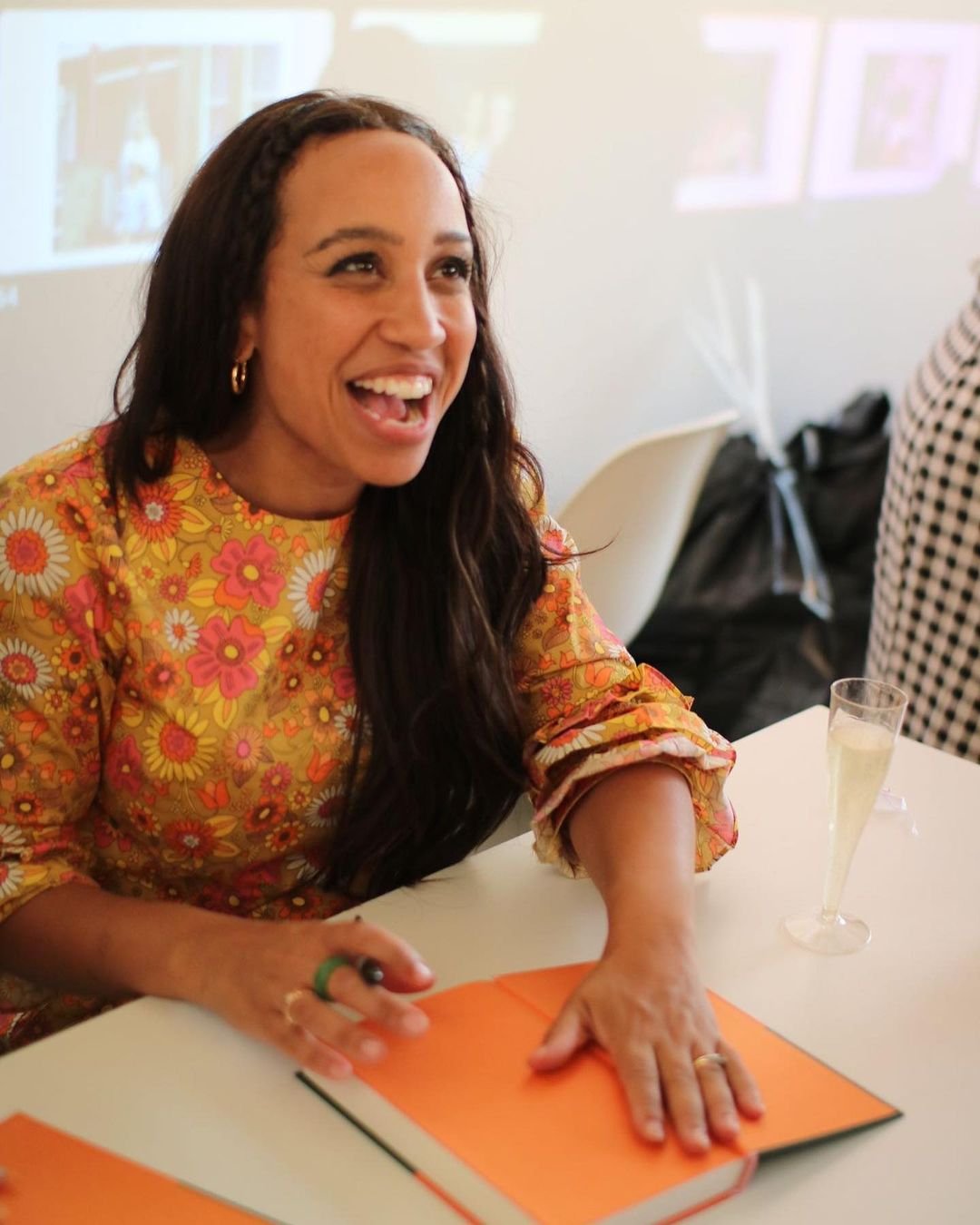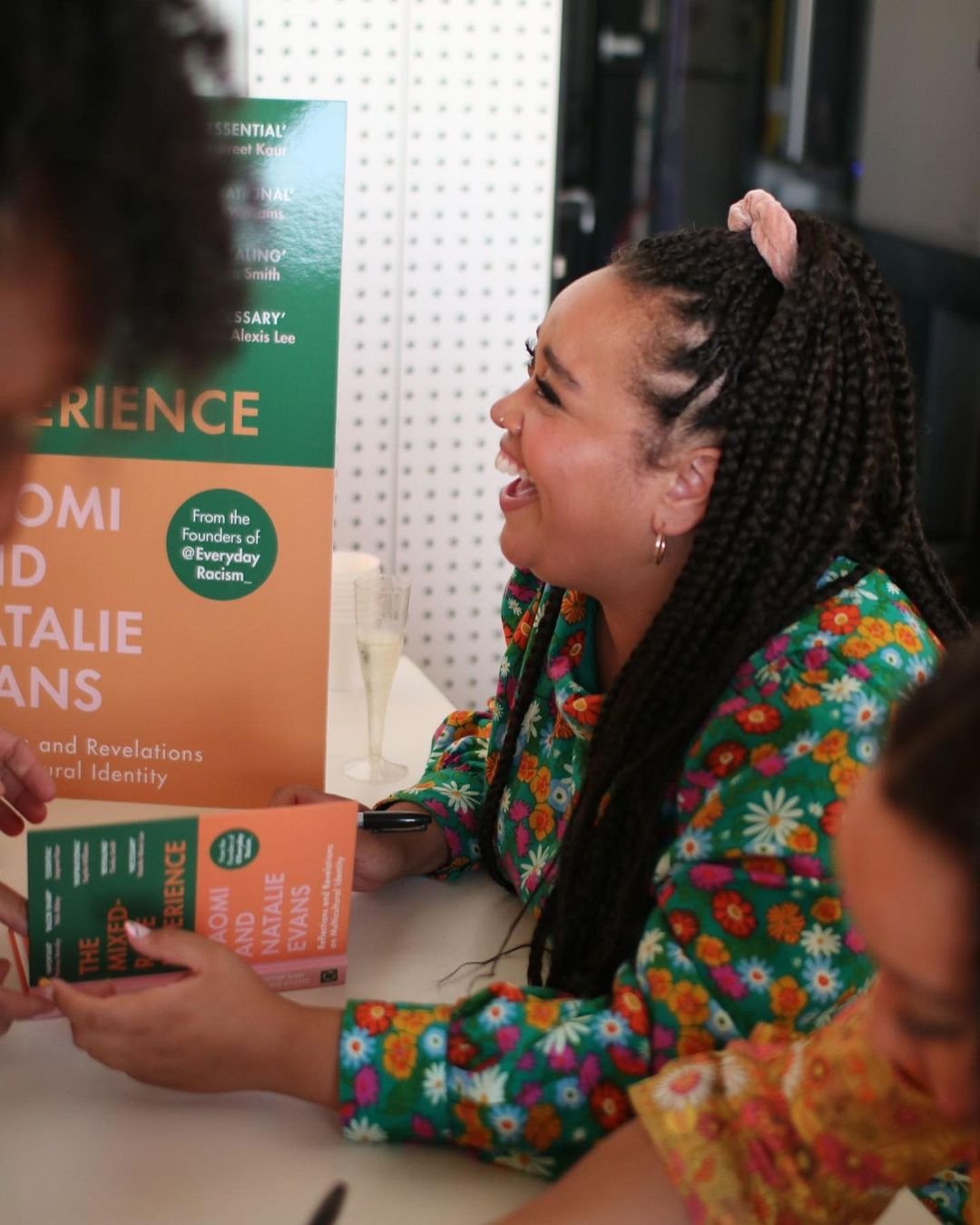The Mixed Race Experience, by Feminist Authors Naomi and Natalie Evans
Naomi and Natalie Evans are of Black Jamaican and White British heritage and have experienced racism both overtly and covertly throughout her life. Together, Naomi and Natalie co-founded Everyday Racism in May 2020, after a video of Natalie confronting two men racially abusing a ticket conductor went viral on twitter.
Together they authored ‘The Mixed Race Experience: Reflections and Revelations on Multicultural Identity’ a thought provoking research and experience driven book answers the question, “What does it mean to be mixed-race in today’s society?”
In this powerful book the authors explore the complexities of mixed-race identities - from the discrimination endured by the 1.2 million mixed people in Britain and millions more elsewhere, to the privileges it can afford. Sharing their own personal experiences of growing up in Britain to illuminate the nuances of racial identity, the book also weaves in:
- Interviews with people from mixed backgrounds and in mixed relationships
- Research to dispel common myths and stereotypes
- Practical advice for mixed-race families and friendships
The Mixed-Race Experience will help you to recognize and confront the racism within your own family and communities, helping us all to deepen our intersectional awareness and commitment to allyship.
The team @ FEMINIST had the opportunity to interview Natalie Evans in light of the book launch, discover what being a feminist means to her below ⬇️
Left to right, Naomi and Natalie Evans
Q: About Naomi Evans and Natalie evans, Authors of ‘The Mixed race experience’
NAOMI EVANS (she/her) is a 37-year-old Head of Drama at a secondary school in the South East of England, an anti-racist educator, speaker and writer. She has been a teacher since completing her PGCE at the London Institute of Education in 2005 and has a wealth of experience in training and leadership within the education system. She is working to influence change in education to ensure the curriculum is not just taught through a white lens. She is also interested in the representation of parenthood in the UK since becoming a mother herself. She has been married for 10 years and is the mother of two young children.
NATALIE EVANS (she/her) is a 31-year-old Events Manager, an anti-racist educator, speaker and writer from Kent. She has managed various festivals and is currently the Events Manager for a new youth festival, which will launch in 2021. She grew up in white majority town before moving to Brighton in 2015. She has recently moved back to her hometown and reflected on her experiences of racism both growing up and in her workplace.
Q: What is your personal mantra?
“I think we have a lot of things in our back pocket that we use to motivate ourselves and each other. We’ll often remind ourselves that we only have one life as we are now and it’s up to us what we choose to do with it. How do we want to look back on our time and how we spent it? Within the work that we do one of my favourite quotes is from Fred Hampton: “We’re going to fight racism not with racism, but we're going to fight with solidarity. We say we're not going to fight capitalism with Black capitalism, but we're going to fight it with socialism.”
Q: How did you find your voice?
“It took a while and it’s certainly been a journey. I think we really started to find our voice after we started our social media account @everydayracism_ We felt like we had a space to share our thoughts without too much censorship. As we connected with more people we realised we weren’t alone and began to feel much more empowered.”
Q: How do you use your power to empower your community?
“We try to uplift others as much as we can. Having a large platform means we are able to give space and signpost to other activists, artists and creatives. I think shining a light on the very real experiences of people from the global majority helps people to feel they are not alone or over imagining the extent of the problem. We have also been able to build a community of proactive people who want to make tangible change which makes us feel less hopeless. We are without a doubt stronger together.”
Q: What motivated you to write ‘The Mixed-Race Experience’?
“Growing up we were often left questioning our identity and where we fit. We lived in a very white majority area where there was an undercurrent of racism and it wasn’t until we were older that we realised the impact this had had on us. We really wanted to write the book we wished we had as teenagers to help us navigate the journey and also one we could give our parents, family and friends. I think the issue of race is often spoken about in binary terms and there is far more nuance that needs to be explored.”
Q: What was your joint process in editing and curating the voices and messages represented in the book?
“We knew most of the chapter headings we wanted to include before we started writing and we explore a number of subjects such as interracial relationships, hair and fetishisation of mixed race children. Once we had those in place we each wrote our own sections and in the final stages of editing went through to make sure it wasn’t repetitive. In the process we interviewed over 25 people from a range of heritages and backgrounds to try and get a broader voice. Some of these interviews are included in the book and it was a fascinating process listening to everyone’s experiences.”
Q: Who is this book for?
“The book is for a multitude of people and offers something for everyone to learn about. We of course had in mind anyone who identifies as mixed race people or who is raising mixed race children but it also explores a number of issues such as race as a construct and how racism shows up today, so it's relevant to all of us.”
Q: What do you hope will happen as a result of people reading this book?
“I hope it will give solace to anyone who has been on journey with their racial identify or struggling to understand how they navigate the way we are racialised. And help others understand some of the complexities of holding a multi-racial identity and support parents and caregivers in helping raise children who are confident and comfortable in themselves.”
Q: What is one of the most common myths or stereotypes about the mixed-race experience?
“I think a common assumption placed on you is that you are not fully whole. Half of this or half of that when of course that’s not how racial identity works. There is also the assumption that when we talk about mixed race people we mean light skin people with one Black parent and one white parent when of course there many more identities than this.”
Q: What was the most difficult part of this book for you to write?
“We go back to our childhood and teenage years which in some ways was therapeutic but also gave us a lot to process along the way. We realised how much of what you navigate in your formative years impacts you going into adulthood and decisions that you make. It’s not to say it has to define you but we had to acknowledge the positive and negative consequences of how that has shaped us.”
Q: What does being a Feminist mean to you?
“For us feminism is about women being able to make choices about our lives and bodies that are not informed or dictated by patriarchal systems and structures. We were thankfully raised as and by a feminist so it’s been at the heartbeat of our upbringing.”
The “The Mixed-Race Experience: Reflections and Revelations on Multicultural Identity” is available for purchase here
You can follow the Every Day Racism community on Instagram here.







